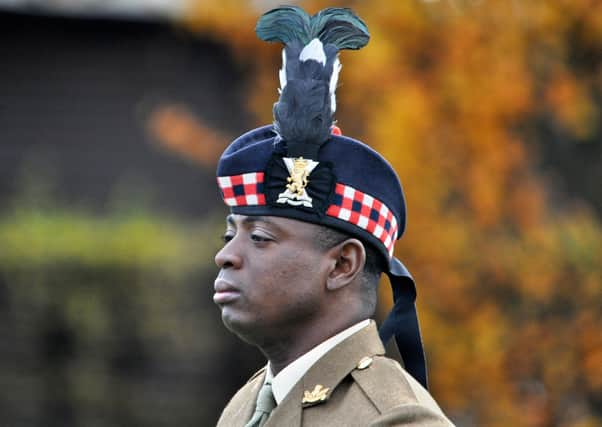Remembrance Sunday will be different


Outdoor public services at the Cenotaph, the Commonwealth War Graves Cemetery, Stonefall and Knaresborough’s war memorial have been cancelled and replaced by private wreath layings.
“Nonetheless it is important that we do not forget those who have laid down their lives for us,” said Guy Wilson, who organises the Remembrance service at Stonefall on behalf of Harrogate Brigantes Rotary Club.
Advertisement
Hide AdAdvertisement
Hide Ad“Though we may be preoccupied with our present troubles we might reflect that in the world wars, too, there was disappointment that it would not be over by Christmas, and that in all wars, too, people are taken from us suddenly and before their time.
“Our local war memorials record the names of many local people who laid down their lives, while at Stonefall are buried over 1000 men and women, mostly from beyond these shores, who came to help us in our hours of greatest need.”
Since 1997 Harrogate Brigantes Rotary Club has organised a Service of Remembrance at the Commonwealth War Graves cemetery at which the focus is one of thanking and honouring young men and women from around the world who volunteered to help this country resist Nazi tyranny.
“It is only right that we do not omit to remember them this year, either,” added Guy.
Advertisement
Hide AdAdvertisement
Hide Ad“And as Black History month has just ended it is also right that we should remember that those who came to help us were by no means all of British descent.
“Three of those who died during the Second World War and who lie at Stonefall may stand as witness to all the others.”
He said Private Selemani Shabani was a Moslem serving in the African Pioneer Corps. The corps saw action with the Eighth Army in North Africa and Italy and some of its members, including Private Shabani, came to Britain and worked on the Mulberry Harbours and PLUTO (pipeline under the ocean) which helped to sustain the D-Day landings and bring us to victory. He died of unknown causes a week after the war ended in Europe on May 15 1945.
Flight Officer Ulric Leslie Lookyan came from Port of Spain, Trinidad. He was on his three month training course with the Operational Training Unit at Donnington when, on January 14 1944, aged only 21, he crashed his Hurricane in poor visibility at Roseden, just south of Wooler in Northumberland and was killed.
Advertisement
Hide AdAdvertisement
Hide AdSergeant Isikela Doviverata Komaisavai was born in the Tailevu province of Fiji. Known to his friends as Ratu Dovi he was said to be a descendant of King Cakobau. He was educated in New Zealand and was a fine rugby player. When war broke out he returned home and volunteered to join the RAF. He joined 234 Squadron as a pilot at some time after the Spring of 1940 when it was re-equipped with Spitfires. He fought with the squadron until he contracted pleurisy in or around January 1944. On October 19 1944 he died in a hospital near Aylesbury. He was just 24.
Guy added: “I shall be remembering one of them in particular - Flight Sergeant John Paul Riches, of 617 (Dambusters) Squadron, who died on 13 February 1944 when his Lancaster crashed near Chichester on returning from bombing the Antheor railway viaduct on the French Mediterranean coast south west of Cannes.
“John Riches was the uncle of our Club secretary Howard Rayner who contracted Covid 19 and died earlier this year.
“My last conversation with Howard, days before his death, was about how best to secure the future of his uncle’s medals and related archive. May they both rest in peace, and may we never forget.”